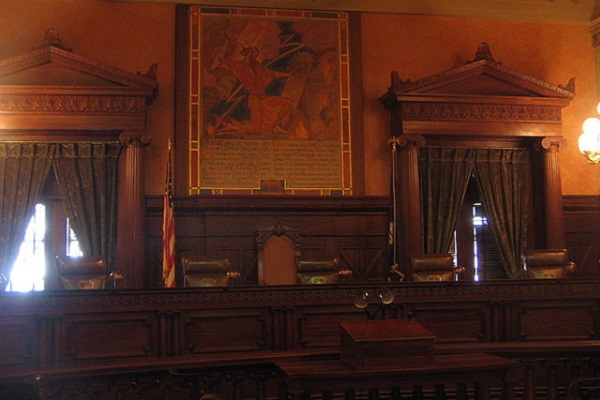
Court Rules Not to Release the Names of 11 Priests Accused of Sexual Assault
- By C Barnett --
- 05 Dec 2018 --

By Ruhrfisch (talk) – Photographed it myself, CC BY-SA 4.0, Link
The ruling was passed 6-1.
A judgment by the Supreme Court of Pennsylvania allowed the privacy of 11 priests who face sexual abuse charges[/tweetit] and are currently under a grand jury investigation. The names of the disgraced clergy will not be publicly released. The highest court ruled secrecy constitutes the only way to make sure the constitutional rights of the accused will be upheld.
Court Rules Not to Release the Names of 11 Priests Accused of Sexual Assault[/tweetthis]
The report at the center of the storm was authored by the office of the state attorney general, and it took two years to write. The matter was investigated by a secret grand jury who considered numerous internal records, under the force of subpoena, from the relevant dioceses.
Josh Shapiro, the Attorney General, requested the names be made public, stating the court order permits the accused priests to remain in hiding and allows the Catholic Church to conceal the names of the guilty.
The majority opinion involved 11 priests challenging the outcome of the investigation and subsequent validity of the concerned report which labeled a total of 301 clergymen as so-called “predatory priests.” These men of the Catholic Church allegedly abused in excess of 1,000 children across six Catholic dioceses.
Justice Debra Todd wrote on behalf of the court majority after accurately gauging the popular mood. “We acknowledge that this outcome may be unsatisfying to the public and to the victims of the abuse detailed in the report. While we understand and empathize with these perspectives, constitutional rights are of the highest order, and even alleged sexual abusers, or those abetting them, are guaranteed by our commonwealth’s Constitution the right of due process.”
Disgusting.. their names should be published everywhere. Society always looks after the perpetrator more than the victim!!! Terrible https://t.co/bY7bD4dzCm
— Michelle Sollicito (@marietta_mom) December 5, 2018
Not all the judges agreed with the ruling. A dissenting opinion was made by Thomas Saylor, the Chief Justice. He argued for the evidentiary hearing in front of a supervising Judge so it can be found out whether the identification of priests was supported by grand jury record. The report released by the grand jury consists of more than 1,000 pages detailing the mind-numbing horrors suffered by the victims who were then residents of Allentown, Scranton, Greensburg, Pittsburgh, and Harrisburg dioceses. It was a 6-1 decision. Governor Shapiro criticized the ruling. He said it plays favorites by protecting a few accusers and ignoring the painful story of many victims.



















